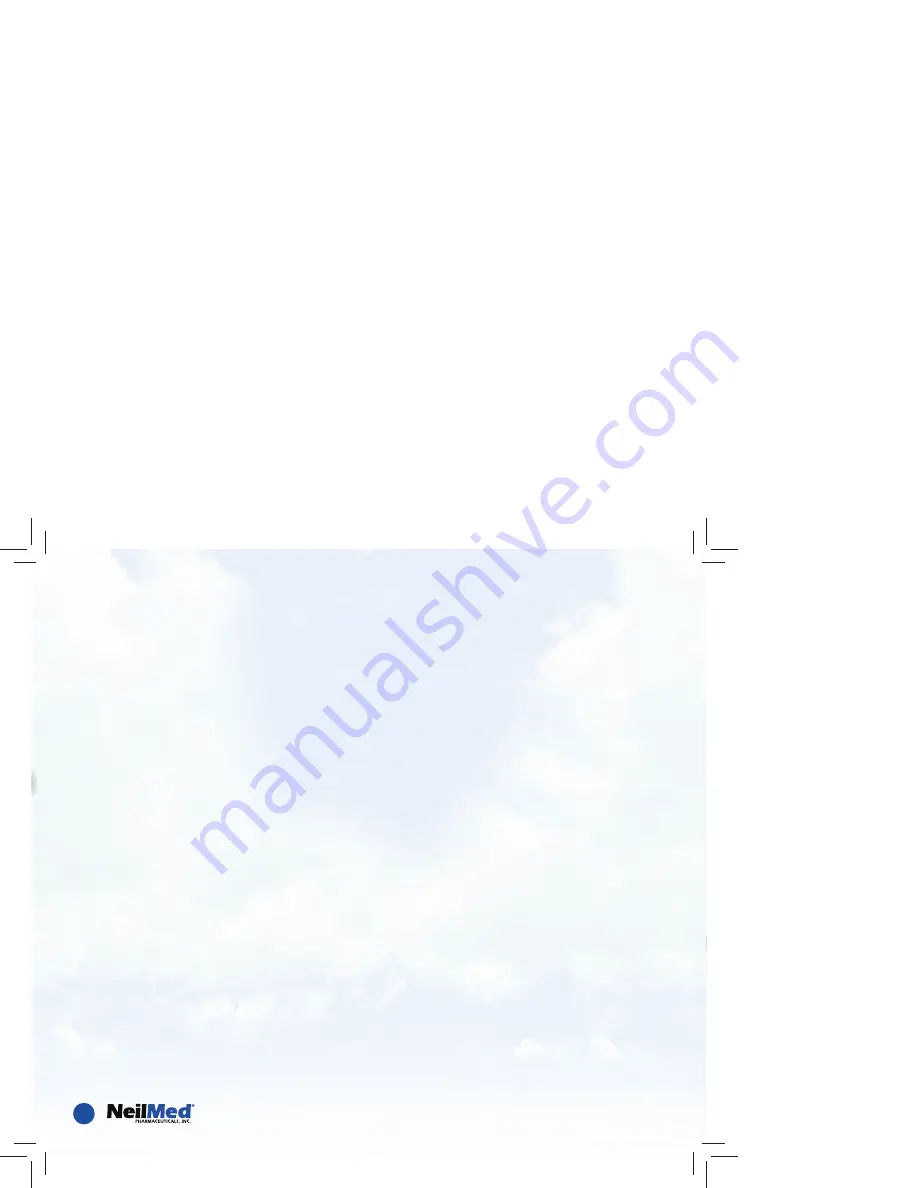
12
frequent rinsing. Consult with your physician about safe
and effective post-operation nasal irrigation.
Q27.
What is a corticosteroid nasal spray?
Synthetic or pharmaceutical corticosteroids are anti-
infl ammatory drugs. They are not anabolic steroids
so please do not confuse these two. Physicians
prescribe corticosteroid nasal sprays to reduce chronic
infl ammation of the mucosa (mucus membrane) of nasal
passages and sinuses.
Q28.
What are nasal decongestants and when do I
use them?
Nasal decongestants constrict the dilated blood vessels
and reduce nasal and sinus congestion. You can ask
further advice about when to use them from your doctor
or pharmacist.
Q29.
What are antihistamines?
Antihistamines are the most common medications used
to treat allergies. They work by blocking the effects of
histamine, which is released during an allergic reaction.
They help relieve the symptoms of sneezing, itchy nose
and eyes and runny nose. They are not as helpful with
nasal congestion.
Q30.
Can I drink alcohol during acute or chronic
symptoms of rhinitis and sinusitis?
Some individuals may get skin fl ushing and nasal
congestion with the use of alcohol. Alcohol worsens
these symptoms and it is recommended that you check
fi rst with your doctor or do not use alcohol while these
symptoms persist.
Q31.
Does smoking lead to rhinitis and sinusitis?
Yes, smoking can lead to rhinitis and sinusitis due to
sinus passages clear.
Q24.
How do I know if I need surgery for my sinuses?
There are various forms of endoscopic sinus surgeries
(ESS or FESS) that can often cure or improve symptoms.
We strongly advise that you contact your physician. You
can request your doctor to refer you to an ENT (ear, nose
& throat) or allergy specialist if your symptoms are not
improving.
Q25.
What is FESS & ESS?
Functional Endoscopic Sinus Surgery (FESS) is a
commonly used term for endoscopic sinus surgery
(ESS) and generally involves very little post-operative
discomfort. Current technology including fi ber optics,
video cameras, high resolution video monitors and
high resolution advanced CAT scanners allow excellent
examination of all openings of the sinuses, nasal
turbinates and nasal septum. When required, surgery will
restore the anatomy to as normal as possible or more
likely as functional as possible by removing obstructions
and improving drainage. FESS or ESS can help improve
or, in many, cases cure the symptoms of chronic sinusitis.
Q26.
Would I need to change my nasal irrigation
technique after sinus surgery?
You may need to rinse more carefully, and you may fi nd
that a larger amount of rinse solution will be necessary.
For best results, after you fi nish rinsing, you may need
to take a little more time to change head positions to
allow more complete drainage from the sinuses. While
bending over the sink, tilt your head sideways to help
improve the drainage of any residual rinse solution. A lot
of the post sinus surgery population may require more
5003S-BRO-HYDP_Rev01_hydropulseBRO.indd 12
5003S-BRO-HYDP_Rev01_hydropulseBRO.indd 12
12/26/17 9:50 AM
12/26/17 9:50 AM


































